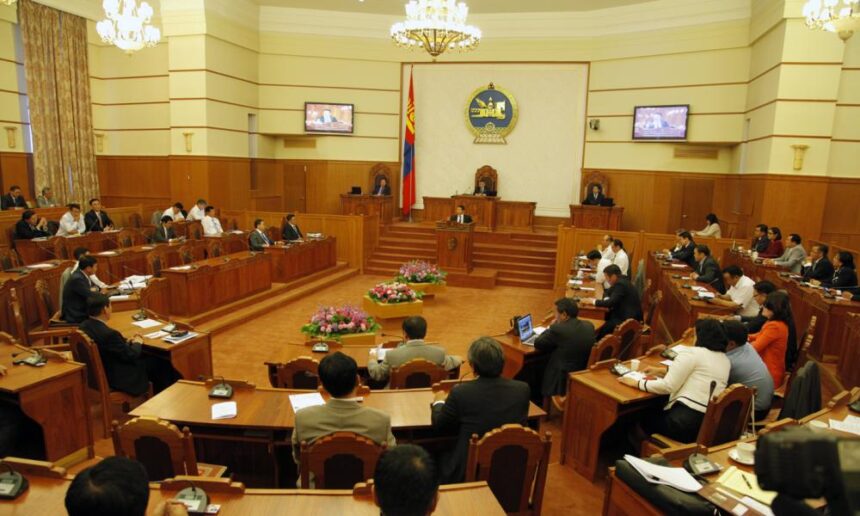Mongolia recently hosted high-level visits from our two neighboring countries. In terms of significance and timing, there was a lot to swallow and digest as the presidents of Mongolia’s eternal neighbors visited us with a short window of time between the two visits.
President Xi Jinping’s visit and the speech he gave will be important in addressing the lack of trust that has defined Sino-Mongolian relations. Transit transport access and the use of China’s seaports were made available to Mongolia. The agreements on power and infrastructure can potentially bring a huge boost to economic cooperation between the two countries. Please refer to the article “Seeing the moonlight from a waterfront pavilion” to read about what Mongolia should bear in mind after this historic visit.
President Putin’s half-day visit and the speech he gave will be important in removing the lack of understanding that has defined Russian-Mongolian relations. Resolving long-awaited issues such as restoring visa-free travel, adding another track to the railway, and introducing a railway electrification system will supposedly bring quality improvements to both economies and trade turnover between Mongolia and Russia. Please refer to the article titled “Mr Putin, tear down the glass wall” to read about where the lack of understanding comes from.
The major challenge after the two high-level visits is whether our government can implement everything that what was discussed and agreed upon. The governments of our two neighbors are steady, high-performing institutions with strong, focused leadership. The institution of our government can be described as low-performing and less efficient because the institutional structure is completely changed and entire government staff is almost fully replaced every four years after parliamentary elections.
As the structure of our government and management system are changed for the interests of political parties rather than national interests, it has become nearly impossible to devise Mongolia’s long-term development policy and implement the mid- and short-term actions that have been planned. It can be seen from the speech Prime Minister Altankhuyag gave two days ago. He said, “Today I would like to announce that I am planning a reshuffling of the cabinet and will propose it to the parliament in the fall session, in order to make the ‘reform’ government more efficient, diligent, responsible, and energetic. The reshuffle will include some ministers and a change to the structure of the government.” There really is a deficiency of governance in Mongolia. The recurrent economic declines in Mongolia have political roots and are caused by faults in policy.
Considering the current situation of the executive branch, it is clear that the Prime Minister has no other choice. It looks like he is proposing the reshuffle before the parliament did. However, when “making the government more efficient, diligent, and responsible”, it will not be enough to make slight changes to the structure of the cabinet. The root cause of Mongolia’s deficiency of governance is political party funding and campaign finance being unknown, not only to the public but also to the regular members of political parties. It is no secret that the individuals and companies that provide political parties with their funding are the ones who order what policy should come from Mongolia’s government, while purchasing state seats and positions. Listing political parties by the weighted number of votes they’ve received and using the public budget to finance political parties that have seats in the parliament will actually have fewer costs for Mongolians and be less expensive compared to the funds that are currently being lost to corruption. This is the first step. If the first step is made, it will be easier to truly separate the legislative and executive branches (which has been talked about for many years without any action) and ensure the transition from “double deel” to “single deel” policy in government. If they start wearing single deels, the current corruption, the biggest roadblock in our way forward, will be considerably reduced. Another step is to prioritize private companies in the selection of companies working on many big projects that have been agreed upon with Russia and China. If a state-owned company is to be involved, it should be explicitly stated that they should be made share-holding companies beforehand.
The biggest weakness of Mongolia’s public governance is that government institutions are not capable of strengthening as an institution and producing efficient performance results. The shortcut to making those institutions stronger and more professional is to seek assistance from our “third neighbors”. Our ministries and agencies should strongly establish their structure using international standards, while laws should be made so that the structure cannot be changed so frequently. Also, it ought to be ensured that ministries and agencies align their operations in the most efficient way. Otherwise, we will never overcome this governance deficiency. Countries such as Indonesia, Malaysia, South Korea, and Singapore have significantly increased the efficiency of their governance using the same approach. Mongolia needs laws that define the scope of work for the role of a minister. The ministers need to be technocrats who have foreign language skills, proper education and knowledge. If the huge projects agreed upon with our two neighbors start before these measures are taken, the current conflicts of interest will only deepen and it will become more difficult to resolve them. Ultimately, it will negatively affect our relations with China and Russia.







